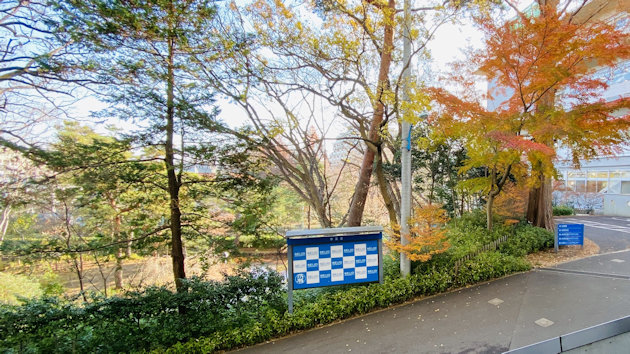
2024/04/08
This page is a course guide and
teaching supplement for my students at Seijo University, Tokyo,
Japan. It is not a part of the official website of the university,
as it contains information related only to my classes.
I will communicate with students through this website, the university's WebClass system, email, and internet tools such as Zoom.
The important things that students need to do is make an effort to keep in contact with the teacher, stay informed about assignments, and finish the assignments quickly.
You have to check four things
regularly:
1. This website
2. WebClass
3. Your university email account (studentnumber@u.seijo.ac.jp). Set up your university email account and check it every day.
Innovation Studies [a] 2024
Contents
The course description is similar to that of the first semester of
this course, but there are new materials to study. The targeted
level of instruction is upper intermediate as described in level
B2 of the guidelines of CEFR (Common European Framework for
Languages). The course covers some of the subject areas taught in
Japanese in other courses offered in the Faculty of Social
Innovation (sociology, psychology, economics, finance, innovation
studies etc.). This course will give students the opportunity to
learn the concepts and the English terminology related to their
fields of study, and to gain an international perspective on these
fields of study.
Objectives
Students will be introduced to articles, lectures and interviews from various fields of study, and they will learn basic concepts and English terminology related to them. The course will also naturally share many of the objectives of previous English courses that focus on the acquisition of general English language skills. Students are expected to work at a higher level than in the first semester (the [a] section of the course) in terms of their ability to analyze and discuss the materials studied, but new students are welcome to join and work at a level suited to their abilities.
Teaching Methods
This
course is a practical. The language of instruction and
communication among students will be English. In the first
semester, the lessons are based on authentic materials such as
magazine articles, TED talks, and interviews broadcast in various
media. The second semester will follow a similar plan but with
different topics and materials, and there will be an expectation
that students will be more capable of using authentic materials in
their studies. The materials will introduce various fields of
study with texts and subtitles that support the audio-visual
material. Students will be expected to comprehend the texts and
learn the terminology of various fields of study. They will
practice taking notes and making written and oral summaries of the
materials studied. Finally, they will discuss and critically
review what they have studied. For a final assignment, students
will present a source of their own choosing on one of the topics
studied during the semester.
Schedule and Plan -
Refer to the syllabus published by the university
One or
two lessons may be taught as on-demand lessons. Students will be
informed of these lessons two weeks in advance.
The
teacher will check all written assignments and offer suggestions
for improving language use and content. The group is usually
small, so there are many opportunities for the teacher to given
spoken feedback during the lessons.
Independent study outside of Course Hours (Assignments, Preparation and Review etc.)
The
study materials are more difficult than what students have
encountered in first and second year courses, so they should
expect to spend more time reviewing lessons and preparing for
lessons. The content of the lessons may be revised if students
find it to be too difficult.
Assessment Criteria and Methods
Review and preparation for classes: 30%, Participation: 30%, Final Presentation: 40%
Textbook
No textbook is required for this course.
Suggested Readings and Supplementary Materials
The study materials are more difficult than what students have encountered in first and second year courses, so they should expect to spend more time reviewing and preparing for lessons. The content of the lessons may be revised if students find it to be too difficult.
Study
materials will be available on the Internet. For some of the
materials, it will not be practical to use only a small device
such as a smartphone. Students should use a computer to review the
materials outside of class time.
Expectations
for Enrolled Students
Because
this is an elective course, it is expected that students will be
highly motivated and capable of working at a higher level than the
first and second year courses. Students should be prepared to
spend extra time preparing for lessons, and they should actively
look for supplementary information on the topics covered in class.
If the chosen materials appear to be too difficult for the
students who enroll, the teacher will adjust the plan described
above to suit the students' abilities. Do not hesitate to join the
class just because it seems to be too challenging.
Method to Contact the Lecturer
riches[at]seijo.ac.jp
Room 3813
Office hours: Monday 15:00-16:00, Friday 10:40-11:40
It is preferable to send an email to the teacher before visiting
during office hours.